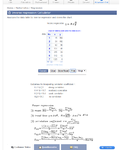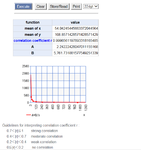pic.programmer
Advanced Member level 3
How to convert these raw adc values to milli seconds ?
I am using PIC18F and 10 bit ADC. The adc value should be converted to millis sec. The function is not linear.
raw adc value 1023 = 6 ms (10000 steps, 50 RPM)
raw adc value 511 = 12 ms (5000 steps, 25 RPM)
raw adc value 255 = 24 ms (2500 steps, 12.5 RPM)
raw adc value 127 = 48 ms (1250 steps, 6.25 RPM)
raw adc value 63 = 96 ms (625 steps, 3.125 RPM)
raw adc value 31 = 192 ms (312.5 steps, 1.5625 RPM)
raw adc value 1 = 300 ms (200 steps, 1.5625 RPM)
raw adc value 0 = infinity ms (0 steps, 0 RPM)
I am using PIC18F and 10 bit ADC. The adc value should be converted to millis sec. The function is not linear.
raw adc value 1023 = 6 ms (10000 steps, 50 RPM)
raw adc value 511 = 12 ms (5000 steps, 25 RPM)
raw adc value 255 = 24 ms (2500 steps, 12.5 RPM)
raw adc value 127 = 48 ms (1250 steps, 6.25 RPM)
raw adc value 63 = 96 ms (625 steps, 3.125 RPM)
raw adc value 31 = 192 ms (312.5 steps, 1.5625 RPM)
raw adc value 1 = 300 ms (200 steps, 1.5625 RPM)
raw adc value 0 = infinity ms (0 steps, 0 RPM)

